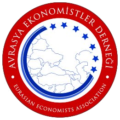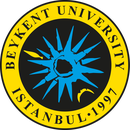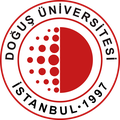
International Congress on Eurasian Economies
26-28 June 2024 – Bishkek, KYRGYZSTAN
Paper properties
Paper ID : 2900
Status : Paper submitted to journal
Language : Turkish
Topic : Growth and Development
Presenter: Research assistant Mahsum Ökmen
Session : 7B Kalkınma
Do Globalization And Technological Diffusion Affect Income Inequality? Evidence From E-7 Countries
Küreselleşme ve Teknolojik Yayılım Gelir Eşı̇tsı̇zlı̇ğı̇ni Etkı̇ler Mı̇? E-7 Ülkelerı̇nden Kanıtlar
- Research assistant Mahsum Ökmen (Doğuş University, Türkiye)
- Research assistant Merve Tosun (Doğuş University, Türkiye)
- Assoc. Prof. Dr. Şeyma Çalışkan Çavdar (Doğuş University, Türkiye)
Abstract
Globalization has unprecedentedly accelerated the flow of goods, services and money across countries. The conditions under which such flow will benefit developing countries have become a matter of debate. Neoclassical theory advocates that trade and financial openness of developing countries should be encouraged on the ground that this policy will contribute to economic growth of developing countries. However, from a sustainable development perspective, the potential of rising flows of goods and capital in triggering income inequality is a relatively neglected issue. The aim of this study is to examine the impact of trade and financial openness, as proxied by foreign direct investment (FDI), trade volume and participation to global value chains, on inequality, as proxied by the GINI coefficient. In this context, E-7 countries, which constitute nearly half of the world population, are analyzed with a panel causality approach over the period 1992-2019. The findings reveal that opennes is not accompanied by income inequality in all countries. While economic integration is associated with an upsurge in inequality in some countries, it is associated with a decline in inequality in others. Therefore, the main recommendation of the study is that economic development requires an approach that takes into account the unique conditions of countries rather than following the neoclassical approach that suggests the same prescription for all countries.
JEL codes: F60, F63, O10



